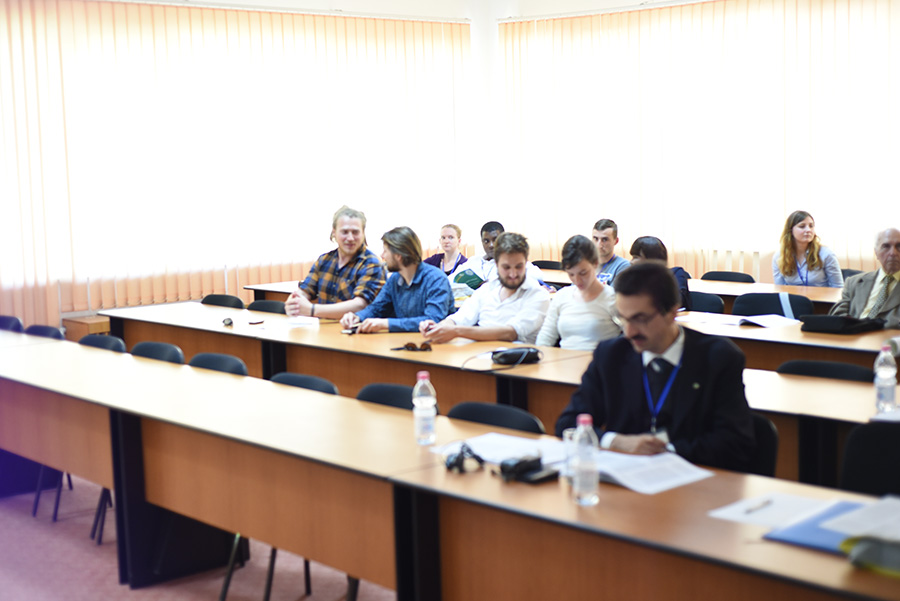"ENERGY, CLIMATE CHANGE AND BIODIVERSITY - RELATED ENVIRONMENTAL CHALLENGES"
Chair: Prof. Dl Dr. Dr.h.c. mult. Martin H. GERZABEK
University of Natural Resources and Life Sciences (BOKU), Vienna, Austria
Co-chair: Prof.Dr. Florian BORLEA
Banat’s University of Agricultural Sciences and Veterinary Medicine "King Michael I of Romania" from Timisoara, Romania
The session consisted of five oral and 11 poster presentations. The contributions covered a wide range of topics. Major emphasis was put on the impact of climate change on water resources, discussing aspects of soil water balance and agricultural irrigation, river ecology and water quality parameters. Methods to derive forest biodiversity were discussed using an example of a nature reserve. Diversity itself was presented in the session on different scales. Research on benthic communities and the impact of biological parameters were reported. Advanced concepts for green spaces for pedestrians in a Romanian city in a marvellous landscape as a measure to improve attractiveness of the city for the development of tourism was presented. A larger number of lectures and posters were related to energy, specifically renewable energy. They focused on the dynamical analysis of solar collectors as well as the optimization of diesel engines, powered by biofuels and biological additives produced in a biorefinery process. The utilization of equivalent thermal network in a modelling ground heat exchanger was another interesting contribution, as were the discussions of "good practices" for the design of wind power stations – including the ongoing dispute of their environmental and social acceptability - and finally the impact of ecological events on the consumption of electricity. Energy and the carbon cycle are intimately connected. Important contributions, therefore, focussed on the carbon footprint of agro-municipal resources used in an Alpine municipality and the carbon footprint of table grape production in Eastern Austria, in order to make wine production more sustainable. Single presentations touched on soil nitrogen leaching as a possible environmental hazard influenced by fertilization and microbial activity, plant growth promotors and plant protection aspects. The application of fungi promoting plant growth and improving resilience against fungal diseases was a well-received contribution. Overall the session was comprised of high quality contributions and experienced lively discussions. It was especially delightful to see the excellent contributions from younger researchers and PhD students, which contributed to the dynamic mood of the scientific interactions.
Presentations:

